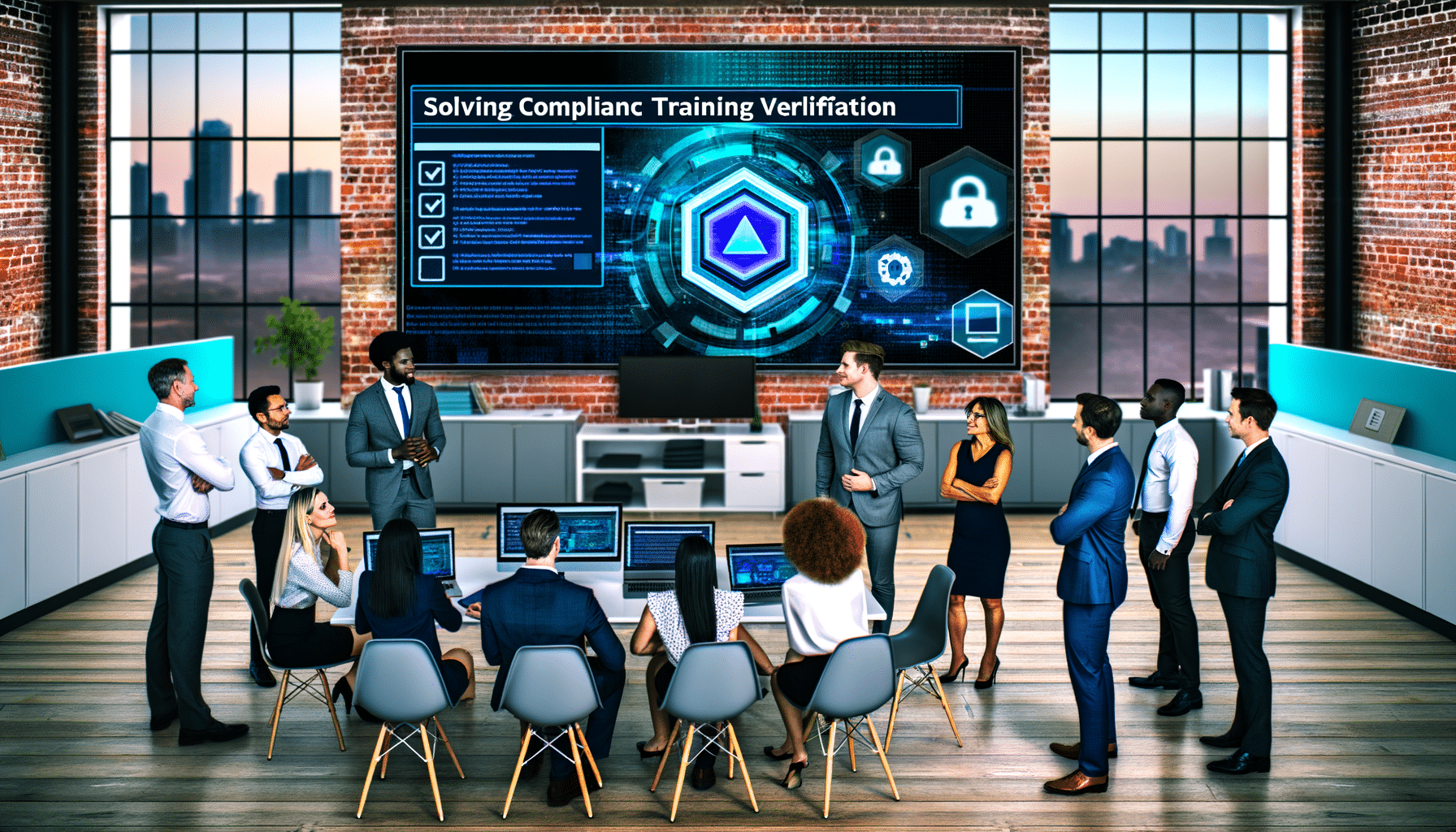- Blockchain Compliance
- November 16, 2024
Solving Compliance Training Verification

Embracing a Revolution: Training Verification in the Era of Compliance
In today’s fast-paced business environment, compliance stands as a cornerstone for success and credibility. Yet, verifying compliance training—ensuring that all employees have completed necessary modules—presents a significant challenge for organizations across various sectors. This task grows more daunting as businesses expand, regulations evolve, and the digital transformation reshapes traditional practices. Here at RecordsKeeper.AI, I’ve witnessed firsthand how leveraging cutting-edge technology can turn these challenges into opportunities.
The Challenges of Verifying Compliance Training
As I navigated the complexities of compliance for various clients, a recurring barrier appeared: training verification. In industries subject to rigorous regulations, like finance, healthcare, and manufacturing, ensuring employee adherence to legal mandates can make or break a company. Unfortunately, outdated methods of tracking completion, such as paper certificates or easily manipulated digital records, often lack both security and reliability.
In my experience, these antiquated systems fail to inspire confidence in stakeholders and regulators. Errors in verification can lead to dire consequences, including legal penalties and reputational damage. Thus, addressing this issue is critical—a non-negotiable in the compliance landscape worldwide.
How Blockchain Transforms Training Verification
During RecordsKeeper.AI’s formative years, an epiphany struck me: Blockchain technology could radically redefine compliance management. At its core, blockchain offers an immutable, decentralized ledger, perfect for securely storing completion records. Using blockchain for training verification elevates the process with efficiency, transparency, and trust—qualities missing from conventional solutions.
Among our clients, the shift towards blockchain-powered verification is not only improving accuracy but also freeing up resources. It’s seamless; once a training module is completed, the blockchain automatically confirms and logs the data, providing an unalterable and real-time record accessible for audits. This approach not only satisfies regulatory scrutiny but also engages employees more deeply with training programs, knowing their achievements are permanently recorded and valued.
Practical Adoption of Blockchain for Compliance
Transitioning to blockchain might appear daunting to the uninitiated. However, at RecordsKeeper.AI, we simplify this shift. Here’s how organizations can adopt blockchain for effective training verification:
Embracing these steps empowers organizations to not only meet compliance requirements but to proactively cultivate a culture of continuous learning and improvement.
Beyond Compliance: Adding Value with AI
While blockchain is transformative, I’ve found that its true potential is unleashed when paired with artificial intelligence. With AI-driven insights, RecordsKeeper.AI ensures that training programs are not a mere check-the-box activity but an intrinsic element of professional development. AI helps in understanding patterns in training data, predicting compliance risks, and customizing content based on learners’ performance, ultimately making compliance training more robust and personalized.
Moreover, using AI to automate mundane compliance tasks has freed up skilled personnel to focus on strategic priorities, a shift that resonates with organizations seeking sustainable growth.
Why Training Verification Matters More Than Ever
A commitment to compliance demonstrates a commitment to quality and ethics. In today’s business environment, stakeholders expect companies to exceed basic regulatory standards. As a compliance officer or department head, it’s imperative to ensure training verification becomes a strategic aspect of your organization’s governance. Blockchain provides the secure, efficient, and transparent solution your compliance framework needs to build trust across the board.
By modernizing your training verification processes, the ripple effect can improve overall operational efficiency and enhance team morale. Employees will appreciate a streamlined process, and stakeholders will recognize your forward-thinking strategies.
Consider this the catalyst for a broader transformation in your approach to compliance. As I have witnessed, embracing innovative technology not only solves immediate problems but positions your organization advantageously for the future. Let’s continue this journey of innovation together, ushering in a new era of accountability and excellence.
I invite you to learn more about how RecordsKeeper.AI can aid in optimizing your compliance framework. Stay curious, stay compliant—and let’s ensure your growth is as sustainable as it is unstoppable.
Toshendra Sharma is the visionary founder and CEO of RecordsKeeper.AI, spearheading the fusion of AI and blockchain to redefine enterprise record management. With a groundbreaking approach to solving complex business challenges, Toshendra combines deep expertise in blockchain and artificial intelligence with an acute understanding of enterprise compliance and security needs.
Related Posts

Organizing External Auditor Access
Setting up secure access for external auditors.
- December 22, 2024
Tracking Record Access During Audits
Maintaining clear logs of who accessed what during audits.
- November 22, 2024
Archives
- December 2024
- November 2024
- October 2024
- September 2024
- August 2024
- July 2024
- June 2024
- May 2024
- April 2024
- March 2024
- February 2024
- January 2024
- December 2023
- November 2023
- October 2023
- September 2023
- August 2023
- July 2023
- June 2023
- May 2023
- April 2023
- March 2023
- February 2023
- January 2023
- December 2022
- November 2022
- October 2022
- September 2022
- March 2019
Want to get more content like this?
Signup to directly get this type of content to your inbox!!
Latest Post
Organizing External Auditor Access
- December 22, 2024
Document Control in Manufacturing Plants
- December 21, 2024
Handling Rush Financial Report Requests
- December 20, 2024
Managing Record Access After Staff Changes
- December 19, 2024





